#small cyclades islands
Text
Welcome to Paradise❣️
This is the breathtaking 📍Pano Koufonissi (πάνω Κουφονήσι) - @cyclades-islands !
It’s part of Koufonisia islands and the small Cyclades islands group !!
It has stunning crystal turquoise waters and amazing relaxing vibes!
Vid by: https://www.instagram.com/reel/CtMwxLfgwCp/?igshid=MzRlODBiNWFlZA==
#cyclades#greece#travel#summer#cyclades_islands#κυκλαδες#ελλαδα#aegeansea#visitgreece#greeksummer#koufonisia#Koufonissi#Cyclades islands#small cyclades islands#koufonisia cyclades#Cyclades greece#explore cyclades#Paradise#welcome to paradise
52 notes
·
View notes
Text
Prehistoric Figurine of a Harp Player, from the Cyclades (Greece), c. 2700-2300 BCE: this figurine was shaped from a block of solid marble and then slowly sanded into form using pumice and emery
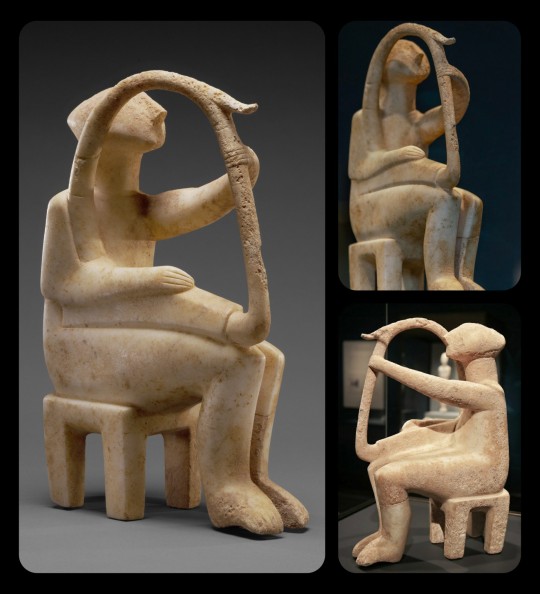
The figurine depicts a musician with a frame harp, an instrument that originated in the Near East and then later spread to the peoples of the Aegean. A sound box forms the section along the base of the instrument, and a small protrusion can be seen near the top of the harp's frame; some experts have argued that this protrusion might represent an ornamental carving of a waterfowl's head, while others argue that it represents a musical extension that facilitates the projection of sound (a feature that often appears on the stringed instruments of the ancient Near East).
This piece measures 35.8cm (about 14 inches) tall.
Musical performances like this are rarely depicted in Cycladic artwork. Depictions of male characters are similarly rare, representing only 5% of the Cycladic sculptures that are known to exist. When male figures are depicted, however, they are frequently shown playing musical instruments, as seen here.
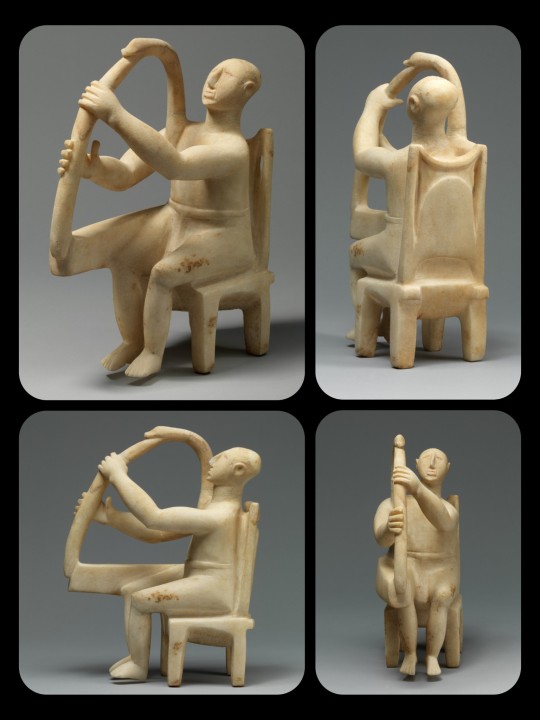
Figurine of a Harpist, c. 2800-2700 BCE: a similar example of a Cycladic sculpture that features a musician with a frame harp
The Museum of Cycladic Art provides a more detailed explanation of the process by which these figures were created:
As we can deduce from the few unfinished figurines that have been discovered so far, the first step in the process was to roughly shape the raw piece of marble into a figure by the impact of a mallet. Emery powder was then used to abrade the surface until it obtained the desired shape and size. Once the desired shape was achieved, the surface was smoothed carefully before the fine work of carving the details started. At the end, the figurine was polished to a high degree that is still amazing.
And according to The Met:
Many of these figures, especially those of the Spedos type, display a remarkable consistency in form and proportion that suggests they were planned with a compass. Scientific analysis has shown that the surface of the marble was painted with mineral-based pigments—azurite for blue and iron ores, or cinnabar for red.
The Cycladic Islands (also known as the Cyclades) are a group of about 30 separate islands in the Southwest Aegean, off the coast of mainland Greece. These islands contain a wealth of natural resources, including marble, emery, pumice, obsidian, and an assortment of precious metals. The prehistoric peoples of the Cyclades made use of these resources for many different purposes, but the marble figurines/sculptures that they crafted during the Bronze Age are perhaps their most famous creation.
The vast majority of these figurines are stylized depictions of the female form. The cultural significance of the sculptures remains unclear; they may have simply been created as decorative pieces/artwork, without any additional function, or they may have been used as fetishes, totems, religious idols, grave goods, or votive offerings.
Sources & More Info:
The Getty Museum: Figurine of a Harp Player
The Met: Cycladic Harp Player
The Met: Early Cycladic Art and Culture
The Museum of Cycladic Art: Techniques
#archaeology#history#artifact#ancient history#prehistoric art#art#sculpture#music#greece#cycladic#bronze age#anthropology#harp
1K notes
·
View notes
Text
8 rare local dishes from the Greek islands
Post inspired by this Greek article. I picked half of the dishes in order to create an island and local exclusive list, then translated and summarized the info. The pictures have links and in most of the respective websites you can find the recipes in Greek.
Makarunes with Sitaka, Kasos island
Makarunes is thick penne-like handmade pasta which is served with caramelised onions and the special Sitaka cheese of Kasos island. Sitaka is so rare, it is sometimes hard to find even in Athens but some restaurants do have this dish in their menu.

Atherinópita (Smelt pie), Syros island
It is not truly a pie, but it is a dish produced from frying various small fish like sand smelts and bogues as well as onions all close together until they create a crust holding them together.
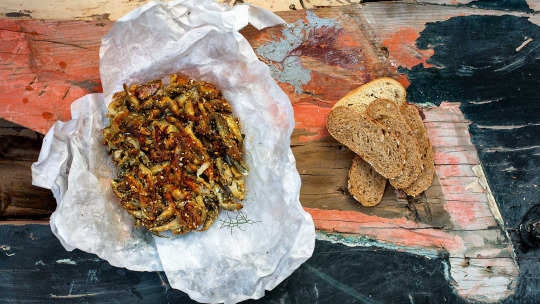
Photography: Χριστίνα Γεωργιάδου
Stuffed Hachles, Lesvos island
These are small baskets made of sun- and air-dried wheat kneaded with sour tarhana. They are usually stuffed with cheese, fresh tomato, herbs and spices but the filling is up to anyone's appetite really.

Sweet sefuklotí pie, Naxos and Tinos islands
Sefukloti or fesklopita is a rare pie that is actually a dessert, which is surprising (in Greek cuisine) because it looks exactly like a spinach pie. Sefukloti is a traditional recipe of these islands, particularly of the Catholics celebrating Christmas Eve (The Cyclades islands have the largest presence of Catholic Christians in Greece.) The pie is made of swiss chard, rice, sugar, molasses, walnuts, raisins, cinnamon and clove. The crust is kneaded with orange juice. Some also add onions and leeks, which also do not prevent this pie from working perfectly as a dessert. Before the serving, sefukloti is dressed with sesame seeds and honey.
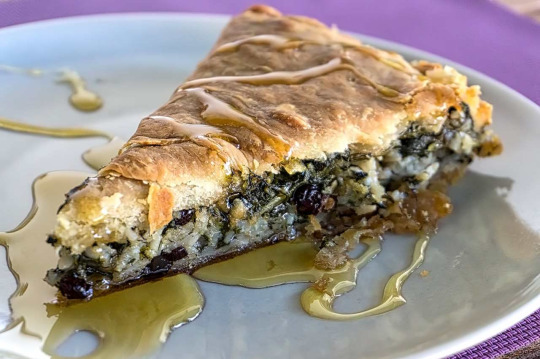
Anthógalo with eggs, Réthymnon, Crete island
Anthogalo or Staka is produced exclusively in Crete island. It is made of the salted fats of sheep milk. In this recipe, eggs are fried with anthogalo which works here like butter. The eggs are buttered by the anthogalo, while parts of it curdle and form cheese pieces during the frying.

Aliaða & Vakalaópita, Cephalonia island
Aliaða is the local version of the Greek garlic dip "skorðaliá". Aliada is made of garlic, potatoes and the juices of boiled cod or octopus. The latter turns the dip a burgundy colour. Besides the famous fried cod that is enjoyed everywhere in Greece, in Cephalonia cod is also used to make "Vakalaópita”, a cod fish pie, in which the crust and the filling are kneaded with wine and vinegar.
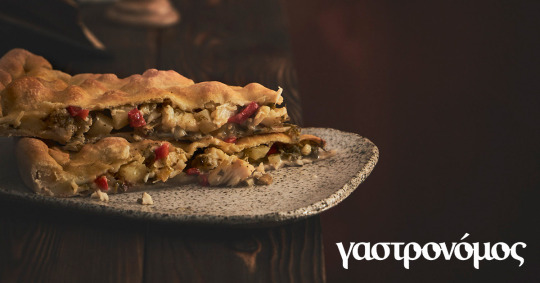
Rhodian pungiá, Rhodes island
These are wild greens pies baked in special local traditional pans. The wild greens are not boiled before they are added to the pie but they are salt dried. The juice that is produced by this process is mixed with olive oil and is used as a dressing for the pie when it's served.
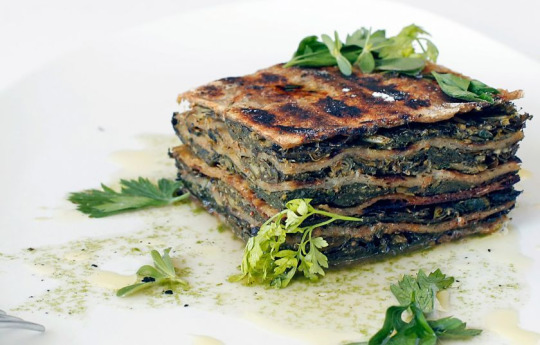
Anthos, Andros island
Anthos means flower. In Andros island it is also the name of the local spoon sweet, made of lemon flowers as well as the flowers of other citrus plants. It is fragrant, chewy and is considered an aristocratic dessert with limited production. It is a pretty hard recipe, because the flowers must be picked at the right time of the season and the cooking must be very careful so that the sweet won't get bitter and dark.

#greece#europe#cuisine#food#greek cuisine#mediterranean cuisine#cyclades#dodecanese#northeastern aegean#heptanese#greek islands#crete#kasos#syros#naxos#cephalonia#rhodes#andros#cycladic islands#ionian islands#kefalonia#rethymnon#rodos
155 notes
·
View notes
Photo

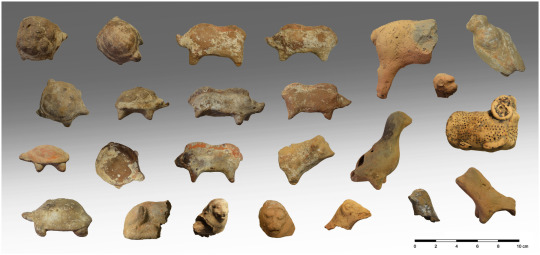


Greek Temple Complex Reveals Thousands of Votive Figurines
Archaeologists excavating a hilltop sanctuary on the Aegean Sea island of Kythnos have discovered “countless” pottery offerings left by ancient worshippers over the centuries, Greece’s Culture Ministry said Wednesday.
A ministry statement said the finds from work this year included more than 2,000 intact or almost complete clay figurines, mostly of women and children but also some of male actors, as well as of tortoises, lions, pigs and birds.
Several ceremonial pottery vessels that were unearthed are linked with the worship of Demeter, the ancient Greek goddess of agriculture, and her daughter Persephone, to whom the excavated sanctuary complex was dedicated.
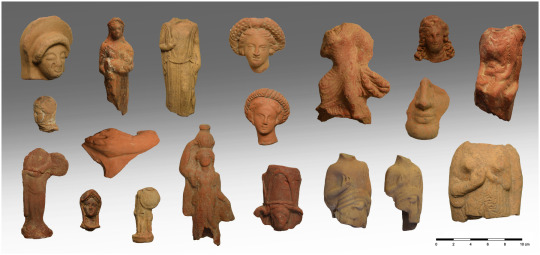
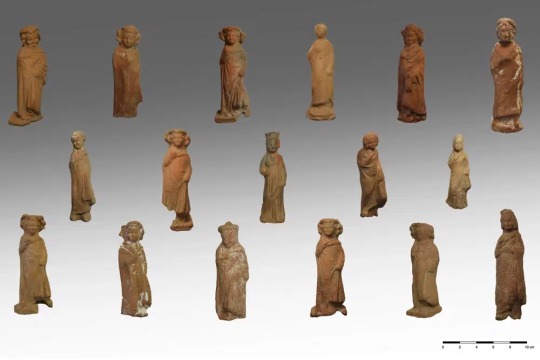
The seaside site of Vryokastro on Kythnos was the ancient capital of the island, inhabited without break between the 12th century B.C. and the 7th A.D., when it was abandoned for a stronger position during a period of pirate raids.
The artifacts came from the scant ruins of the two small temples, a long building close by that may have served as a temple storeroom and a nearby pit where older offerings were buried to make space for new ones. The sanctuary was in use for about a thousand years, starting from the 7th century B.C.



The excavation by Greece’s University of Thessaly and the Culture Ministry also found luxury pottery imported from other parts of Greece, ornate lamps and fragments of ritual vases used in the worship of Demeter and Persephone at Eleusis, an ancient Athens suburb.
It is unclear to what extent the site on Kythnos was associated with Eleusis — one of the most important religious centers in ancient Greece, where the goddesses were worshipped during secret rites that were only open to initiates forbidden to speak of what they saw. The sanctuary at Eleusis is known to have owned land on the island.
Kythnos, in the Cyclades island group, was first inhabited about 10,000 years ago. Its copper deposits were mined from the 3rd millennium B.C., and in Roman times it was a place of political exile.
The excavations are set to continue through 2025.
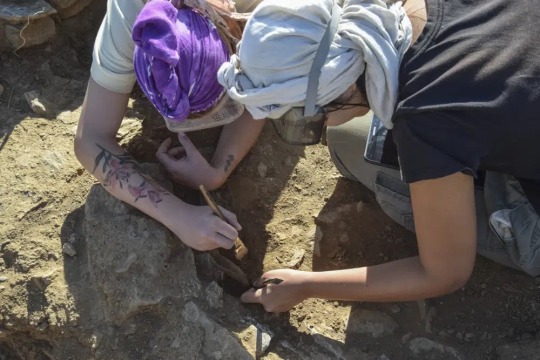
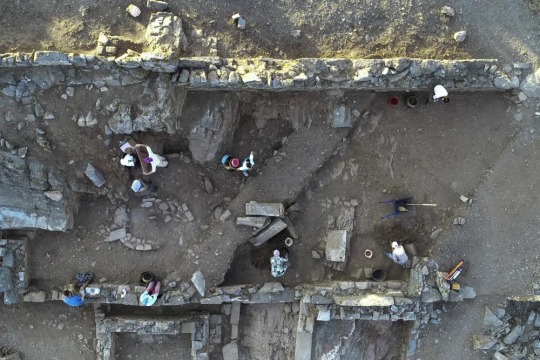
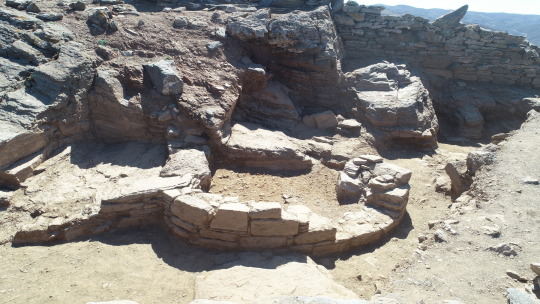
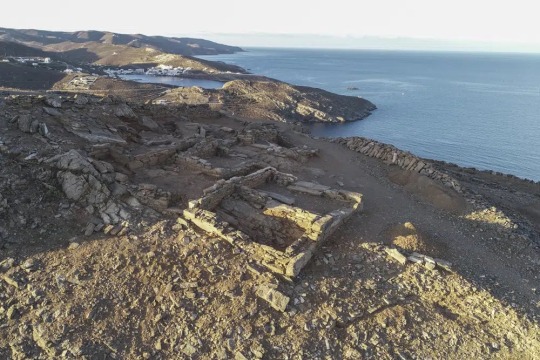
#Greek Temple Complex Reveals Thousands of Votive Figurines#island of kythnos#pottery#pottery offerings#ancient artifacts#archeology#archeolgst#history#history news#ancient history#ancient culture#ancient civilizations#ancient greece#greek history#greek art#long reads
530 notes
·
View notes
Text
seaside sanctuary ༊*·˚

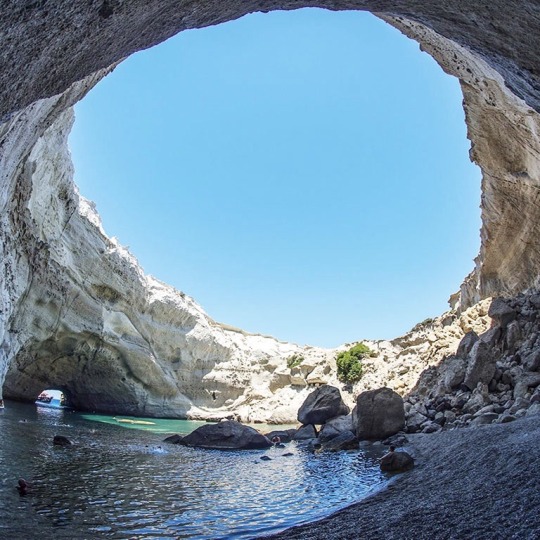
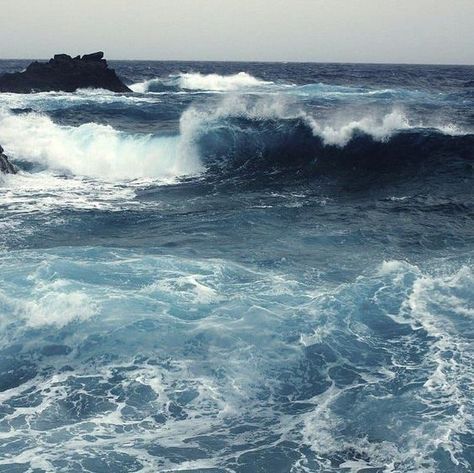
༘♡ speak to me in the language of lovers
during your vocation on a greek island, you and timothée spend some time on a secluded beach. a conversation you have makes him seriously think of your future together
The magic of Milos had settled over you gently and clingingly with its volcanic rock formations and golden shores. Not even two weeks had passed since the day you and Timothée arrived on the island, and you had already become one with the locals; traveling in all its cryptic passages and discovering the heart of the town.
You had found happiness in simple and frugal things like walking along pebbled pathways and marble streets with your boyfriend’s palm inside yours, fingers conjoined and tangled, quick pecks on the cheek and forehead, small glances and furtive smiles, soft laughs, warm or cold hugs, his head balancing tiredly on your shoulder and yours burying on his chest listening to his steady heartbeat.
It was Timothée’s idea to invite your families since you had only a month at your disposal before returning back to work and it was an opportunity to spend some time with them. Besides, it was such a beautiful trip, you had to share this unrepeatable experience.
Altogether you traveled with your sailboat around the island and stayed on secluded beaches, accessible only by the sea. Hours and hours had been spent under the sun; swimming, snorkeling, laying on the deck, enjoying the sunset at anchor.
Blazing afternoon sunrays penetrated your skin and blinded your vision, as the briny breeze fanned your face, pulling back strands of salty hair, tangling them with the blowing fair wind.
The Aegen was opening around you; a sapphire-colored sea that touched the line of the sky, extending to a wild yet quiet horizon. It was summer and the world was in a splendor.
Your arms were leaning on the silver railings of the boat and your gaze was up in the bright blue veil, watching the seagulls fly high and dive at the water, then rising up again, squawking loudly to each other.
A burst of familiar boisterous laughter led your eyes to the back at the cockpit. You couldn’t help but smile before even allowing your stare to pierce that dirty glass, only at the sound of his voice. Your head slowly fell to the side and stayed balanced on top of your shoulder.
Timothée’s radiant smile made you unconsciously laugh a little. And he must've noticed because even through the thick glass and the heavy blanket of water and salt covering it, he stared back at you with an electrifying glint and grinned widely as he bent down to knock at the glass a few times and then waved at you.
« Let’s go! », he told you.
You pushed yourself off the railings. Hushed murmurs accompanied by melodious giggles forced you to change your gaze from scenic islets and coves to a small group of people. Barefoot and sun-dazed, their hearts still left in the old pirates’ hideout, Kleftiko, your parents and Pauline, were laying relaxed on the boat. Their swimsuits were on, bodies still wet from their previous dive, drying under shining sunrays. Green beer bottles with the word ‘Mythos’ written on their lebels were reflecting golden beams of light, as cigarettes burnt in the air alongside sprinkles of brine and rust.
« Pauline? », you called her name. She sat better at her elbows and raised her eyes that were covered with black shades. « You’re coming? »
« Nah, » she replied throwing her head back. « I’m tired. I’ll just stay here and take a nap. Have fun though. » You nodded at her words and moved slowly and steadily to the back, hands holding tightly the ropes of the boat.
« Hey, » Timothée grinned at you.
« Hi, » you greeted him and the Captain. « Where are we right now? »
« We are at Sykia, » Timothée replied. He wrapped his arm around you, letting it fall loose on your shoulder as he held you.
« Yeah that’s right, » the Captain spoke with his heavy Greek voice that held a melodious tone only people from Cyclades had. « Once you pass that tunnel, you’ll end up in the cave, » he pointed in the direction you were already looking at. Timothée nodded in understandment, arms snaking in your lower spine, bringing you closer to his body. « And when you get inside, you'll notice that a part of the roof of the cave is missing. It was submerged years ago and now there is a kind of natural skylight. »
« Oh that’s cool, » you said turning to the scenery while Timothée’s nose was mindlessly circling your cheek and temple, tracing soft lines over your brow. Sun kissed your faces and drifted at the space between, giving away a sheen.
« It is cool, » the Captain continued. « I mean, what are you even doing in Milos if you haven’t visited Sykia? » You both lightly laughed at his words as you took Timothée’s hand in yours and pressed a pair of soft lips on top of it before he lightly patted your cheek with his hand making you grin, melting at his warm touch, and hug him tight.
You had anchored close to the cave, less than half of a nautical mile. Waves were luring the boat along with them giving it a soft waft.
Timothée waited for you to approach the edge of the boat before jumping off the stern into a calm steady sea with a thunderous splash that sprinkled you from head to toe, and then paddled the water. Quickly he emerged, throwing his head back and pulling pieces of hair that were stuck on his forehead, out of his face. With cold water stinging your skin, you lightly stepped back gasping.
« Come in! », Timothée laughed and motioned his head to you.
« It’s cold! », you slouched your shoulders, arms wrapped around your stomach. You glanced back regretting your decision of not staying with Pauline to take a nap as well.
« Come in! », he said in a more demanding tone. You bit your lips and shook your head. « I’m going to splash you. »
“No, you wouldn’t.”
« You sure about that? », he asked tossing a small wave of water in your direction.
« Timothée, it’s cold! »
« I’ll splash you. » You looked at him for a few seconds. « I’ll do it. »
« Fine, » you groaned making him smile, and without much thought jumped into the sea.
A freezing feeling struck then gradually consumed your body. Nothing but the sea was surrounding you and you kicked your feet through bitter water, gasping for air. You fought for a moment breathlessly to come to the surface and then looked at Timothée who was already a bit ahead of you.
« Wait, wait, wait! », you shouted at him. He stopped and turned around to look at you, as you paddled along the blue to be closer to him. Timothée couldn’t help but laugh, watching you all puffed, your legs weightless kicking an uncharted abyss below.
Together you glided the blue, reaching the tunnel Captain told you about. Your head moved up too distracted from watching the brown-greenish rocks above your head. Tim pulled your hand and pressed a wet kiss on your cheek.
« Let’s go, » he said, his voice echoing loud all around as if coming from speakers.
The cave had no roof just like the Captain described it. Sun rays were lighting the inside of the cave, creating amazing colorations that enchanted you. It was a unique miracle every visitor should see.
On the inside was a small pebbled beach, with rocks and crystal clear waters. There was no one there. Just the two of you.
Like true children of the sun, you swam in the idyllic calm and then ran to the pebbled shore, free, repeating the gestures of athletes of Delos.
« Aren’t you afraid it’s going to fall and crush us down? », you told him as your hands cupped in the air the part of the cave that was still up. Your bodies were close to each other, so close you could hear the smile forming on his lips.
« It’s been like that for so many years, why does it have to fall now that we are here? », he asked. You rolled your eyes and chuckled.
« I’m just saying, » you mumbled. He breathed out heavily which made you turn in question. « What? », you looked at him.
« Oh, nothing, » he laughed a little, pulling back his wet hair. You kept staring at him for a few seconds watching droplets watering the rocks below you.
« I’ve never been happier. » He wore a dreamful smile. « And I wish every day could be like that. »
« Like what? », his eyebrow slightly raised. Your mouth curled up thinking of your response as your gaze turned back to the crystal pure tapestry of the sky.
« Waking up together… making love… having breakfast… going for a walk… swimming… making love again and then having a bath together. » Your words caused a boyish grin to appear on his face and you imitated his expression. « Eating together, listening to music, watching the sunset… you laughing and me laughing because you are laughing… telling you how much I love you… »
« Sounds good to me, » he said and leaned to kiss your shoulder. You pouted your lips and looked down. Timothée frowned and then turned to the side, balancing on his one elbow, to take a better look at you.
« You won’t tell me how much you love me back? », you bit your lips trying not to smile. His face flushed at your mincing manner and how you pronounced the world ‘love’. He looked away.
« Oh, of course, I’ll tell you, » he bent lower his head and you tented your neck to catch his lips, your hand holding back his hair as he moved on top of you, dripping water running on your body. He breathed out hot air on your face making your head fall back trying to get some oxygen inside before returning to him, your heads touching and lips almost stitched together.
« Y/N, » he said voice deep echoing inside you. « I really need you to know this. »
« You don’t have to say anything. »
« No, I have to, » Tim gulped. « You walked by chance into my very messy life and from day to day, I started to breathe better. Before you, without you, I loved nothing. With you, I have accepted more things. I have learned to live. That's probably why I’ve always mixed my love for you with so much gratitude. » Your mouth slightly opened and eyes glanced away. « I mean every word. »
Without warning you kissed him on the lips. He let out a muffled sound from the force with which your mouth touched his.
« I wouldn’t have loved you any less, if you didn’t say anything, » you told him. Your stare was fixed on his plum reddish lips that tasted like salt and apricots and cherries. « But now that you did, all I can do is love you more. »
He smiled. His forehead brushed against yours as he let you lick away his grin and kiss him. First slow, sweet, soft; then harder, fiery, urgent, like a poem of Odysseas Elytis.
It was a true sisyphean work watching the way the lurking glint of your eyes and your wolfish grin dig up his most shameful secrets, without ripping the animal from within and burying himself in your streams of love and delicate words.
The waft’s stroke maneuvered between you, warm like a teenage memory, spreading sprinkles of salt and rust to the air. Bodies entangled in summer thunders, as the gentle splash of water on your toes offered a kind of peace, privacy, and safety that you had both missed.
You flapped and then stayed there in comfortable silence. But as you watched the horizon slowly bleed from the crevice of the tunnel, Timothée couldn't think of the swollen sun, honeycombs, and wasted old summers.
The only thing he had in mind was how much he loved you, how much you loved him - because he knew that - and how much he couldn't wait any longer for you to live together forever.
And as you laid together, eyes gazing at the moon and the starlit sky, bodies hugging one another, his lips lingering on your head and fingers gently storing your hair, he probably took one of the most important, life-changing decisions about your life.
He was going to ask you to marry him.
#hamlets-ak#timothee chalamet#timothée chalamet#timothee chalamet x reader#timothee fanfic#timothee chalamet social media au#timothee chalamet x you#timothee chalamet imagine#timothee chalamet fanfiction
579 notes
·
View notes
Text

We're so used to referring to Apollo and Artemis as Divine Twins, but did you know that the earliest known Ancient Greek sources do not explicitly denote the two as being twins?
That isn't to say one text depicting a myth is more correct than the other - but I so rarely see mentions of Apollo and Artemis as not twins that I find it all the more dear.
There is beauty in Solar and Lunar twins - but I also see the same beauty in siblings who are not predetermined to be each other's mirror by the fact of birth.
The first mention of Apollo's name in the Ancient Greek texts is in the Homeric Hymn to Apollo (3), trans. by Hugh G. Evelyn-White:

Here's a link to the original.
They are not explicitly called twins and They have different birthplaces: Apollo's birthplace is Delos, Cyclades - Artemis is born in a place named Ortygia. It should be stated that only Apollo's birth is given any sort of detail, and it is unclear where Ortygia was.
Ortygia (center of modern Syracuse named after the Greek word for quail) in Sicily has been known to Greek colonizers since around the 8th century BCE, Homeric Hymns date to approximately the 7th-6th century BCE. It's possible that Artemis was born there. In this case, the locations are separated by the Ionian sea and a large part of Greece. Delos is a small island to the North from Naxos and right at the Southern ridge of Mykonos, Ortygia in Italy is the Eastern part of Sicily:
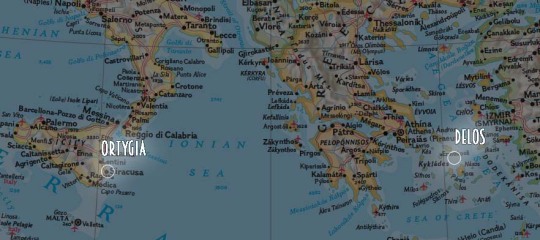
Ortygia could also be attributed to a large number of other places. Strabo (63 BCE - 24 AD) in his Geography (10.5.5) stated that Ortygia is but an old name for Delos or for Rheneia, a small island in the Cyclades:
Rheneia is a desert isle within four stadia from Delos, and there the Delians bury their dead; for it is unlawful to bury, or even burn, a corpse in Delos itself, and it is unlawful even to keep a dog there. In earlier times it was called Ortygia.
Though earlier in the same book (6.2.4) he argues that Ortygia might also be in Sicily. He gives a detailed explanation of what we now know as the Old Town of Syracuse:
Ortygia is connected with the mainland, near which it lies, by a bridge, and has the fountain of Arethusa, which sends forth a river that empties immediately into the sea.
— The Geography of Strabo, Books 1-5 translated by Hamilton and Falconer
Ortygia is also a placename attested to different parts of Greece. For example, in Homer's Odyssey (5.123), a much earlier text, Artemis kills Orion in Ortygia and the place is not anyhow noted to be connected to Delos:
<...> until in Ortygia chaste golden-throned Artemis
attacked with her painless darts and killed him.
— The Odyssey of Homer, translated by James E. Huddleston
Hymn to Apollo is not the only Ancient text predating any mention of "twins" that did not specify that the two were born at the same time. Hymn to Artemis (27) calls the Gods a brother and a sister while Hymn to Artemis (9) indicates that They were raised together (ὁμότροφον) without a notion of the circumstances of Their birth. Those are the earliest sources we know of, but there were many other authors and traditions that followed, some of which were:
Homer in the Iliad makes Them a son and a daughter of Leto
Hesiod mentions them being born from the same mother
Neither describe the two as twins.
Apollodorus in his Bibliotheca (1.4.1.) makes Artemis be a first-born so She serves as a midwife for Apollo
Plutarch in Pelopidas states that Apollo was born in Tegyra, Boeotia
Some later sources (Callimachus, Servius) consider Artemis to be first-born while some (Hyginius) do not specify on time of birth.
The first - and most prominent - author to speak of the Divine Twins is Pindar (518-438 BCE) in his Olympian odes (3.35), here he refers to Them as twins of Leda. At the same time, in the Nemean odes (1.1) he calls Ortygia in Sicily Artemis' birthplace and "sister to Delos" (might be metaphorical, as in sister-state). Orphic Hymn 35 to Leto (1st-3rd AD?) also calls Them twins.
It should probably also be noted that the cult of Artemis and the cult of Apollo are not always interconnected. While some locations (such as Delos and Ortygia, Sicily) have a history of implementing both Deities into the same votive tradition, some (Didyma, Claros) have worship of the Gods completely disconnected from each other. It is likely worth another post, but worship of Apollo didn't necessarily imply His sister, and vice versa.
With all of this being said, I do not believe that one version of the story is above another. And while I do find it fascinating - and logical - that the idea of Apollo and Artemis being twin-Deities has taken root, I do appreciate other, older and not, versions of the same legend.
#HISTORIA 📔#I have an insane aesthetic rule with golden text but. I hope you can see underlined text; those are all links.#greek mythology#greek gods#artemis#apollo#artemis deity
97 notes
·
View notes
Text

We wish you a Happy New Year! See you in 2024 on Naxos and Small Cyclades!
Greetings from Naxos and Small Cyclades!
www.naxos.gr
#naxosandsmallcyclades#SmallCyclades#Naxos#naxosisland#Greece#Aegean#visitgreece#greekislands#aegeansea#cyclades_island#travelgreece#lovegreece#island#travel_greece#perfect_greece#Ναξος#Ελλάδα#MerryChristmas#year2024#HappyNewYear
#ελλάδα#ναξος#smallcyclades#naxosisland#village#lovegreece#greece#visitgreece#naxosandsmallcyclades#naxos#year2024#happynewyear
9 notes
·
View notes
Text
Let me convince you that the Greek island of Paros is THE place to be.
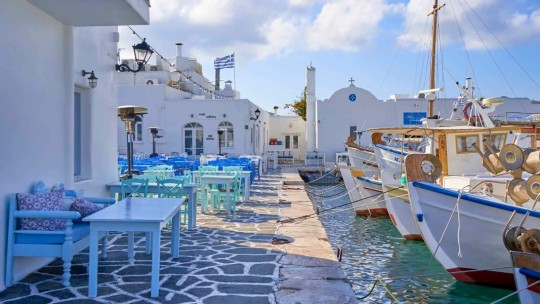
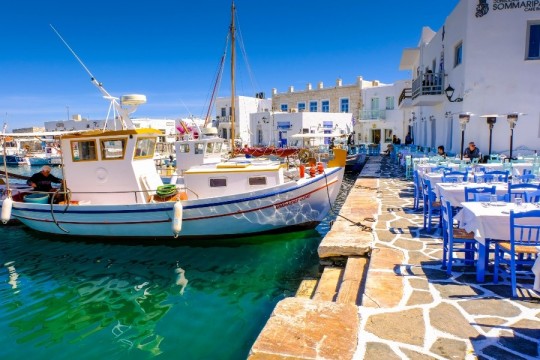
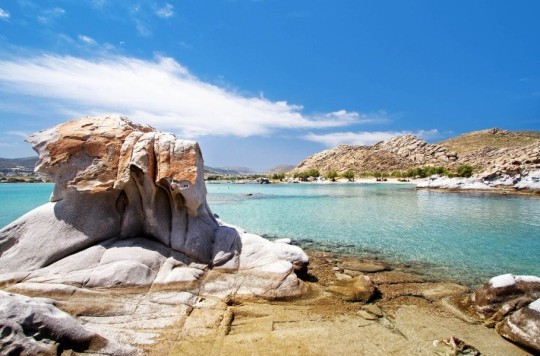
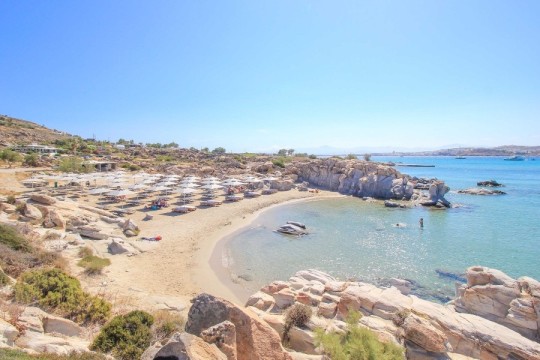
Here are my top 5 reasons to pack your bags and head there for your next holiday.
1. Get lost in the charming village of Naoussa, the picturesque fishing village in the north of Paros. Strolling through its narrow, cobbled streets and admiring the white-washed houses with blue doors and windows will make you feel like you're living in a postcard. The village is also home to a beautiful Venetian castle and a bustling marina.
2. Embrace the vibrant nightlife in Parikia. If you're in the mood for a night to remember, look at the island's capital, Parikia. This lively town is brimming with bars, clubs, and tavernas, offering a fantastic mix of traditional and modern. So, put on your dancing shoes and get ready to party the night away with the locals.
3. Explore the ancient history at the Panagia Ekatontapiliani Church. Built in the 4th century, the Panagia Ekatontapiliani (also known as the Church of 100 Doors) is a must-visit for history buffs.
4. Soak up the sun at the golden beaches of Paros. What's a Greek island holiday without some beach time, right? Paros boasts an array of stunning beaches, each with its own unique charm. Whether you're looking for a secluded spot to unwind or a lively beach with water sports, you'll find it here. My favourites are Kolymbithres Beach, with its otherworldly rock formations, and the windsurfer's paradise of Golden Beach.
5. Sail away on a boat trip to nearby islands. No trip to Paros would be complete without exploring the surrounding islands. Hop on a boat tour and discover the breathtaking beauty of nearby Antiparos, Naxos, and the uninhabited islets of the Small Cyclades. The crystal-clear waters, stunning landscapes, and secluded beaches will leave you speechless.
#goexploregreece#greece#travel#mustsee#mustvisit#europe#holiday#travel tips#traveling#travel photography#wanderlust#places to visit#trip#beautiful views#must visit#must see#paros#cyclades#greek island#greek islands#islands#island hopping#visit greece
22 notes
·
View notes
Text
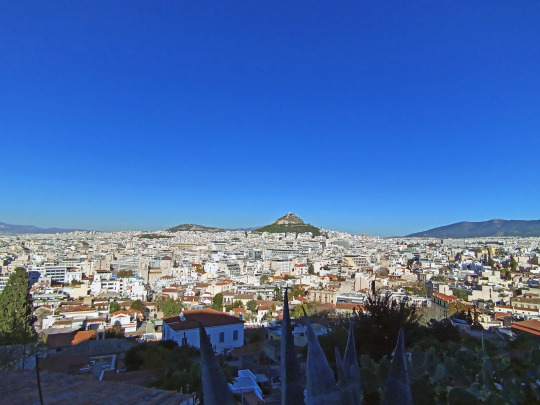


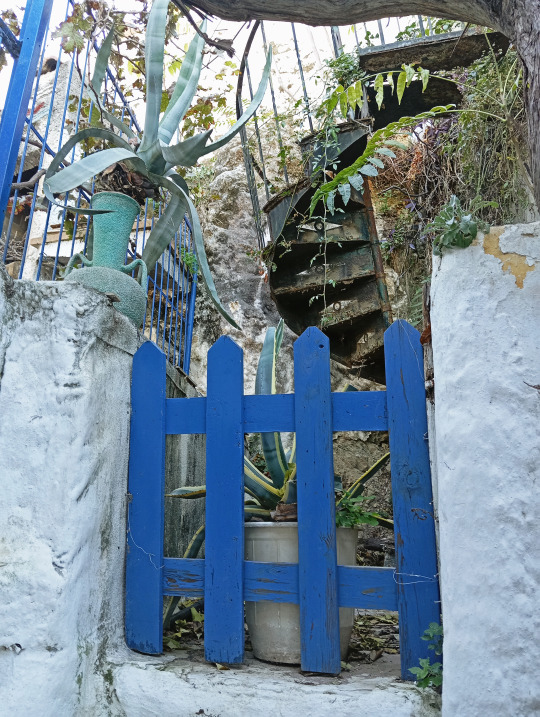
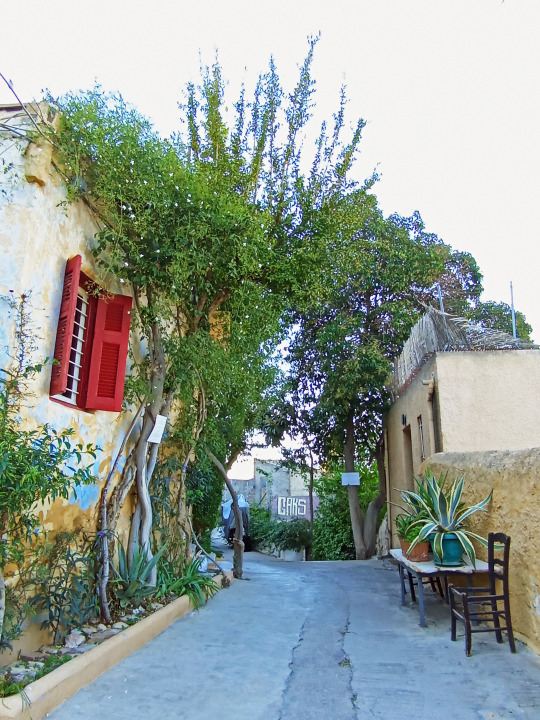


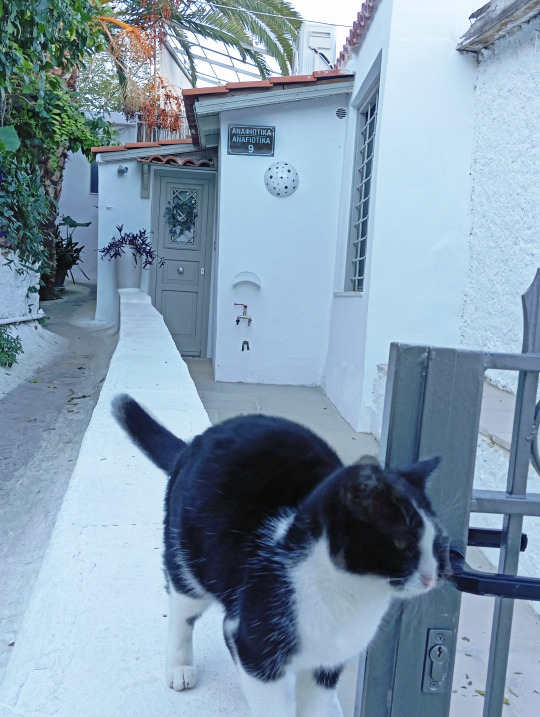

Anafiotika is literally under the Acropolis, it looks like a village in the Cyclades with all the white small houses, and it's because it was built by people from Anafi, the furthest island. In the XIX century, many workers came from there to build a palace for the king (which is the actual Parliament in Syntagma square, i guess) and in Athens they stayed!👷
This place is like a different world inside Athens and a tiny labyrinth at the same time. I wanted to get lost inside so much and finally did it! But it's important not to forget that this is actually just a tiny neighborhood and not a touristic attraction, and there are people inside the houses doing their daily duties. And you can hear them, and they can hear you, so... 🤫
Many houses were abandoned, in ruins or similar. Many passages were so narrow that a corpulent person would have trouble crossing them. And if you have mobility issues... most of the zone is unaccessible.😧
I loved to be able to get lost inside Anafiotika, just wanted to point the pros and cons. I'm sure it looks even more amazing in summer ❤
4 notes
·
View notes
Text
I'm just thinking about like...Greek myth again. And Disney's version of Beauty and the Beast, and how that comes from Psyche and Eros and now I'm using it for Patroclus and Achilles -- mixed in with a bit of Little Mermaid, some Sleeping Beauty, a bit of a lot of things.
I know. I know. but bear with me.
Set in an even-more-fantasy version of Greece, mostly decoupled from the Epic Cycle's canon, the marriage of Peleus and Thetis ended a bit differently (and also happened earlier okay shh). Instead of fomenting chaos with an apple, Eris took out her frustrations more directly, and cursed the marriage she was banned from.
They don't expect much, everything seems fine, but seven years after their son is born, a terrible storm ravages Phthia -- ravages much of the peninsula, really. (This storm may or may not be the result of even more Eris Bullshit.) Much of the land is drowned, and soon what once was the Achaean mainland is more like the Cyclades -- a bunch of islands in a vast ocean.
Peleus dies. Most people die, in fact. Thetis, as a Nereid, survives, but her son is drowning and she has no time to make him a god, so she uses a dangerous magic to allow him to live in the sea, merging him with a shark and granting him something like eternal life.
She's a goddess, and her divine power does let Achilles live. But this boy, this child, is forever transformed, and in his terror and rage attacks his mother, and anyone who comes near him. Thetis is pulled away by her sisters, and Achilles is abandoned, alone, and scared.
It's a vicious curse he has. Craving flesh and companionship equally, unable to fully get comfortable on land or in sea. Thetis, from afar, eventually builds her son a half-submerged palace on the island that once was Mount Pelion, with companionship in the wise centaur Chiron, one of the few who survived the flood.
Chiron has to be gentle with his new associate. He teaches Achilles how to fish and prepare food, and how to hunt what game survives on the island without allowing any species to die out. Achilles matures somewhat, from a terrified child into a petulant teenager into something resembling a young man, but he's not a young man. He's a monster, and his mind is irrevocably changed.
Fast forward a few generations.
Society is rebuilding itself, slowly. The waters have hardly receded, but humanity has survived, albeit without the glorious kingdoms of the past. The island chain of Pindos cradles several communities, and a culture has emerged of 'divers,' explorers who go down into the depths below to try and reclaim what was lost. It's a dangerous job, considering the monsters that lurk beneath the depths -- the Pyrisous is the most dangerous one of all, an enormous man-like monster who devours foolish mortals whole.
Patroclus is not one of these divers. He's the son of a local chief, kept around despite his temper and the murder he committed as a child because it's hard to afford losing anybody, even a liability like him. He's big and strong, and put to work with building and fishing, anything that keeps him from talking to people for too long.
He chafes at the loneliness, but he can't say it's unwarranted. His father's influence is the only reason he wasn't sent out on a raft to die, and he knows it. He keeps his temper reined in and tries not to be too much trouble, but he wants to be loved. He wants to be cared for, and appreciated.
So it goes that when a small fleet of ships from across the ocean come, people from Troy offering their assistance in whatever matters, Patroclus throws himself into one-upping them. He fishes harder to get his people food, he erects entire buildings by himself, and when the leader of the party, Hector, floats the idea of sending people out to try and deal with the Pyrisous, Patroclus takes a ship and sets sail himself, armed with a harpoon and some rations.
It doesn't go well. His ship wrecks in a storm, and Patroclus barely survives long enough to wash up on the shore of Pelion. He's scraggly and sopping wet, and Achilles would just eat him, but Chiron's been rather sad lately, and perhaps the company would be good for the centaur. (He tries not to eat people if he can help it. Chiron's always so disappointed when he does that.)
Patroclus is deeply confused when he wakes up in a limestone palace, a centaur off to the side of him firmly reprimanding what looks like a man...or a shark...or something, who's half submerged in a pool that seems to stretch along half the room. His first intention is to flee, to run away instantly, but his ankle is twisted and there's nowhere he can go, really, not without a boat.
He doesn't know how to build a boat.
Back at home, Menoetius is freaking out about losing his son. It's his son, after all -- they didn't always see eye to eye, and of course there was resentment, but despite the seeming opinion of much of the island, he didn't want his child to die! Hector and the Trojan contingent overhear, and offer to go looking for him. They need to head out soon anyway, in order to hunt some of the monsters killing the people of the islands.
The relationship between Achilles and Patroclus is deeply contentious at first. Of course it is -- why wouldn't it be? Each one wanted to kill the other at one point, and they're both extremely bad at hiding that fact. Chiron is practically the only thing that can keep them in the same room. On the other hand, Achilles is obsessed with Patroclus's appearance, his deep human-ness after decades and decades of being away from humanity, and Patroclus guiltily enjoys the company of someone who doesn't judge him for his past actions, who doesn't know his history.
I don't know how long they're together for, learning about each other, discovering things about themselves. Achilles is reticent to share stories about his past, and what Patroclus offers is highly sanitised, but they come to understand more about each other than they've ever understood themselves.
And then the Trojan contingent comes, heavy with spears and weaponry to defend the people. And Patroclus very quickly needs to make a decision about what he believes in, and who he trusts.
#DC talks#DC writes#Patroclus#Achilles#Patrochilles#just to be clear#Hector is a good guy in this#he is making a reasonable assessment of the situation based on the information he has available#and he's not wrong!#achilles is kind of a monster in this!#he's cut down on his cannibalism a lot since when he was younger#but he's still kind of a monster#he doesn't cause the storms though
9 notes
·
View notes
Text
“Percy.”
He would know her voice anywhere. Life breathed back into him, enough to turn around.
Annabeth stood under the entry way, noon sun lighting the backdrop of the ocean behind her almost blindingly. She was as he had left her, beautiful and unharmed.
They embraced, fierce and unhurried. She was warm beneath his hands and he dug them in, as if he might sear his fingertips with that heat.
“What are you doing here?” he asked. She pulled back enough to gaze upon him.
With a shake of disbelief, she spoke the words, “What do you think?”
Emotion him took by the throat then and he kissed her with everything he had left. They talked, they ate and drank. They made love and they laughed and spent considerable lengths in silence, staring at one another. The sun crossed the sky with an unbothered gait as the chatter of naiads drifted over them.
For a moment, he fooled himself into believing this was all life had planned for him.
She rolled closer to him, gray eyes alight. In the fading heat of late afternoon, they exchanged more words until it felt as if they had not been separated at all.
“Tell me where we are,” he said. Her smile small, she pushed a curl from his brow.
“Be serious,” she said.
“My father told me little,” he said. “Triton said even less.”
“So nothing.”
“He rolled his eyes when I seemed unfamiliar.”
Annabeth turned, looking through the loggia at the landscape before them. Trees swayed in the gentle breeze, leading to open greenery. Nymphs were tending to gardens in the near distance.
“Tinos,” she said. “An island of the Cyclades. In the ancient world, Poseidon had presence here,” she glanced at him. “Still does, clearly.”
A pause grew between them. He slipped his hand into hers.
“Go on,” he said.
“There was a sanctuary, a temple. Devoted to him, to Amphitrite. I’m unsure what the locals would make of this.” She twirled her free hand in the air, a grand gesture. “Seeing as it’s in ruins.”
“Mist is a powerful thing,” he said.
“There’s still power here.” In her eyes, he could tell she was far away. “It’s a stronghold. One he probably can’t risk losing.”
“Right,” he said, then brought her hand up to his lips and pressed a kiss there.
“Percy,” she murmured. “This won’t be like the last.”
“I know.”
“This isn’t thrones and quests and weapons. It will be battles and trickery, back and forth, until someone breaks.”
“I know,” he said again. She took a hand to her forehead, fingers sifting through golden curls, jaw tight. Exhaustion and weary.
He leaned closer, “And to think I thought I was good for something.”
She smacked him across the arm, releasing a humored huff. “You’re being much to sanguine about this.”
“Your presence brings that out of me.”
Annabeth pursed her lips, brows knotting, and he knew their moment was over then. He kissed her once so she might not cry, though was ready to hold her if she did. Her grip tightened in his.
“Want to see my mom?” he asked.
“Of course.”
11 notes
·
View notes
Text


Thank you kindly for the tag @bibliosophie ❤️
Five things that make me happy:
1. My husband Christos, beautiful inside and out, who will always surprise me with his ancient soul and youthful persona. And our pug Darth, a joyful little clown with his own mind and curious personality.
2. My hobby; paper. My hobby has turned me into a paper hoarder; anything paper related with all the additional things that goes with it. Paper allows me to make books, art journals, collages, anything really as long as I keep an open and curious mind.
I always buy at least one journal or notebook in every country we visit during our vacations, and while traveling I collect papers off the streets, poster walls, stickers peeled off lamp posts or memorabilia wherever there is some to take for free.
3. Greece ❤️ with Paros on the top of my mind. A small Greek island which sits in the heart of the Aegean sea and belongs to the Cyclades. I visited Paros last year for the first time, and at first sight I was blown away by all the whitewashed houses though a little sceptical about the desert nature and rocky terrain. When we left Paros, after having explored its magickal nature and medieval villages, as I stood there on the ferry watching the island disappear in the horizon - tears flowed down my cheeks as I realised Paros had stolen a piece of my heart. I still have that heartache, longing for Paros, and can’t wait to return in September.
4. Really good tv-series, lastly seen: Maestro in Blue (2022) and Colony (2016). Though *Star Trek will always be rolling on tv while I indulge in my paper play.
*Star Trek (1966), TNG (1987), DS9 (1993), Voyager (1995), Enterprise (2001)
5. Food, delicious food! Cooking myself, often trying something new (latest was Mexican mole), or tasting interesting foods while traveling, or spoiling myself with the offerings from our local restaurants or cafés in and around Stockholm.
@stumblingoverchaos
@peikonlainen
@notebookmuseum
@tuntematonkorppi
@starrynightcat
@the-solarpunk-activist
@charlie-whiskey-foxtrot
@bloodhive
@vampire-squid
@radipede
3 notes
·
View notes
Note
How was Monemvasia? I really want to go one day and from pictures and videos i see it's a really small and picturesque town, reminds of these old medieval villages. Also ot has a unique aesthetic it's not seen often in Greece where here its either the white/blue houses or the Neoclassical ones
WELL I am glad you ask!
Monemvasia is super cool. I have been to cooler places but if you want to go somewhere that's relaxing and kinda romantic and introspective and you don't care for sandy beaches, you can't go wrong with monemvasia.
(It is actually a medieval castle-town btw, it doesn't only look like one.)
In terms of the houses: The blue-and-white houses are mostly a cycladic/island style and it's been largery blown out of proportion because it was attractive to tourists. Most of the mainland's traditional houses are not like that at all. Grey stone houses is what most of traditional greek architecture is about. Of course, preserved towns and villages like monemvasia that have kept their old look as a whole stand out.
Notes on Monemvasia specifically:
-It is not at all accessible for poeple with mobility issues. Lots of walking steep and slippery paths, lots of very narrow places and steps and stuff.
-Go in the winter. If you go in like, December, on days when it's sunny/not raining, you will have the best experience. It gets really hot in the summer and if you want to explore the ancient ruins on top of the island or walk about you will suffer. Plus in the summer it has way more tourists. In the winter you can really take in the place in peace.
2 notes
·
View notes
Text
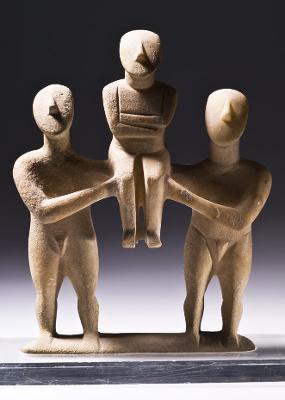
In the group composition, three idols are united in one piece. Two male figures raise a smaller, female figure on their arms. On the forehead of the left of the two men, the rest of a zigzag-shaped line, probably a diadem, can be seen.
This is the only fully preserved Cycladic group composition that is currently known. Their meaning is not immediately apparent; a religious background cannot be ruled out. It remains to be seen whether it is specifically a divine triad or a kind of mythological group or a ritual action carried out as part of a religious festival, which was held here in stone.
Idol Group, Early Cycladic II, around 2700-2400 / 2300 BC, currently held in the Badische Landesmuseum, Karlsruhe, Germany.
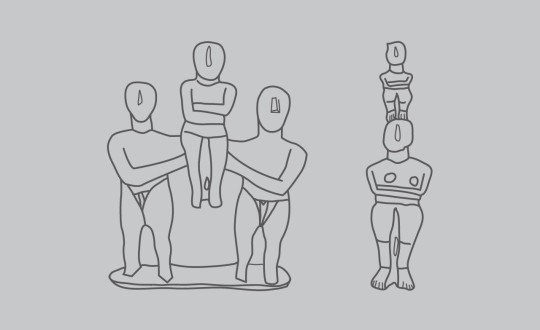
Sketch of the Cycladic Idol Group from the Cycladic Museum, Athens.
Last, there is a small number of unusual examples representing various groups of figures (e.g. “double” figurines with one female standing on top of larger one). Those figurines date to the most productive period of Cycladic sculpture (Early Cycladic II).
The interpretation of the abstract motifs which were painted on the face and body of several figurines is a contested issue. Some scholars believe that they represent instances of body piercing or painted decoration for particular social or ritual occasions. Others believe that they were status symbols. According to another theory, they were meant to express different attributes of the represented figure. It has even been theorized that they functioned as characteristic symbols of a common cultural or social identity. This discrepancy of approaches should not come as a surprise, since the study of painted motifs on Cycladic figurines is still at an early stage.
On the provenance of the Idol Group, from the Badisches Landesmuseum (private correspondence):
The three-figure group Inv. No. 77/59 was acquired by our museum from the antique market in 1977. Unfortunately without indication of the provenance, previous owner or the place where it was found. So far there have been no scientific investigations that could reveal any residues of paint, minerals or sintering. But we will do this in the near future. Then hopefully we can say more about this group.
On the history of Cycladic art and its trade, from Hyperallergic, Sorry, But This Is Not “Repatriation”
Cycladic figurines are marble statuettes produced by the small-scale communities in the Aegean Cycladic islands in the third millennium BCE. A smaller number of them has been found in Crete, and an even smaller amount is still in mainland Greece and in western Anatolia (but in this case they belong to a specific type). They were mostly found in burials, although more recently several have been found in domestic contexts, and in some ritual deposits, most notably on the tiny Cycladic island of Keros, the focus of an ongoing, systematic archaeological investigation and the site of major illicit looting in the past.
Cycladic figurines are often called magical and enigmatic, plaudits that add to their appeal. But they are enigmatic for a reason. Archaeologically, we know very little about their role and meaning because they have been extremely unfortunate to attract, after millennia of neglect, the attention of modernist western artists, mostly in the second half of the 20th century. The likes of Picasso, Giacometti, and Moore were inspired by them and elevated them to the status of masterpieces, admiring in particular their perceived austerity and simplicity. They became part of the culture of “high art” and of the discourse on connoisseurship. Demand from rich collectors and museums rose dramatically, which led to the looting of many hundreds of archaeological sites, destroying for good the archaeological knowledge that comes from context and its detailed and careful study. As a result, the vast majority of Cycladic figurines currently in museums and collections lack provenance and are the outcome of looting. An industry of fakes also rose, and when using marble from the same islands it’s almost impossible to tell apart from the prehistoric originals. Many fakes were bought by major western museums and collectors, corrupting the whole corpus. This is all already well-known, staple diet for any undergraduate archaeological curriculum.
On a current deal to "repatriate" some of these figures from a private collection in the US, via the same article:
This is the line of argument that the current government has also adopted in relation to this deal: they will come back to the country, in 50 years. But at what cost? Whitewashing the looting of archaeological sites? Transferring the possession of antiquities and the income generated from them to private museums that have been either created as a result of looting or are implicated in the handling of looted objects? Privatizing archaeological material heritage in general? Undermining all restitution claims by Greece and others? What about the reparations for the destruction of archaeological knowledge and context, the destruction, in fact, of the Early Cycladic worlds? And how are these objects to be presented and interpreted to the various publics, given the absence of any contextual information?
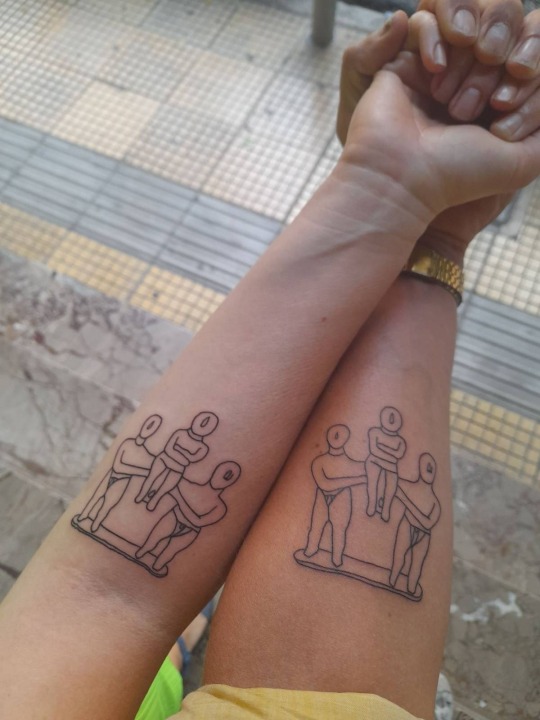
A commitment to finding out more, among other things.
4 notes
·
View notes
Text
Your Boat Or A Boat To Make The Retirement
Sabang greatest known for diving could offers other opportunities for the sporty or active travelers. Go water skiing and rent a jet ski. Try арендовать лодку на паросе and prepare in order to tossed in the water of your friends. Try kayaking and go a couple of beaches separate. Explore the Sabang area alone and independently by renting a four wheel motorbike and discover sights you've never seen initially. Spend a quiet and relaxing afternoon in the Ponderosa Golf Club, may up in the wilderness. Whether you're a golf enthusiast or not, you will not miss the chance to play golf or eat an afternoon snack while enjoying the magnificent panoramic view for the mountains and islands of Puerto Galera.
Normally if you do end up staying in the current small places you will be able to rent a boat to proceed for on particular and locations even has horses should ride and explore on your own.
You acquire more liberty with a luxury yacht charter. An additional advantage that you get to enjoy if you decide for luxury yacht charter is better freedom to choose when it comes down to your destination. You could hop from one Caribbean island to the other, countries like Paris, San Francisco, London, or Switzerland. You're able also rent the yachts for for a longer period of spare time.
Bareboat yacht charter - This type of charter very best suited for groups people today who where at minimum one part of the group has sailing experience and qualifications. Definitely is an ideally suited way figure out the area on your own schedule, spending more in time your favorite places, eating when ??? ?????????? ????? ? ?????? and what you to help eat, getting the privacy to relax the way you wish to. These are fantastic for romantic getaways for just two.
As part of the sales process the yacht in order to deleted from Greek windows registry. Upon deletion an official ownership certificate will be issued from your Hellenic Registrar of Shipping and delivery. The certificate will say the boat is freed from encumbrances and liens.
Greece is steeped in natural beauty and medieval history. When charter a Greek yacht for 7 days or more you will not run out of things discover and places to transfer. The Ionian Islands or the Cyclades, the Dodencanese along with the Sporades in the Aegean Sea are popular yacht charter playgrounds. Discovering the Aegean Islands is better done within early summer to attributes carefully strong wind called the Meltemi, which can seem unyielding. Immersing yourself your market culture and 'day to day' life in the little port villages on the Greek Islands is a normal pastime for visitors to the sun baked islands.
How would you go about finding achievable on a yacht? Thanks for asking. Perform a search on the internet, for 'sail yacht crew needed.' There will be a lot of websites, you might know where to look primarily. You might prefer to refine your hunt. Does the yacht offer champagne and caviar towards customers and crew? Is preferable to just sail into the islands without the appropriate embellishments, after all.
#botel#stay#hotel#rent a boat#yachts#boat rentals near me#boat rental near me#ibiza#barcelona#Spain#Mallorca#menorca#malaga#palma#la palma#airbnb#boat#yacht#vacation#rent a yacht#boat rentals#yacht rentals#boating#fishing#sleep
2 notes
·
View notes
Photo
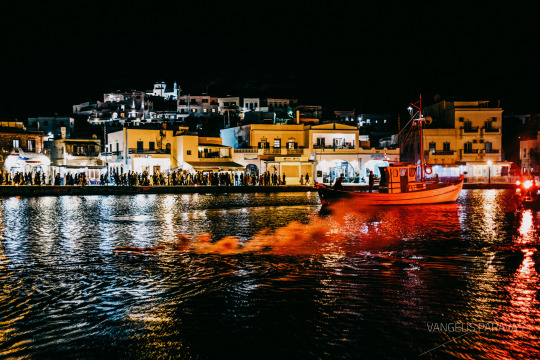
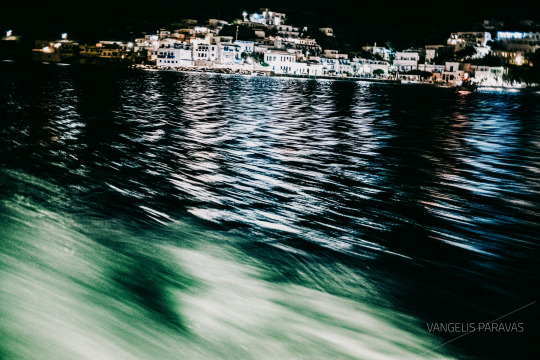
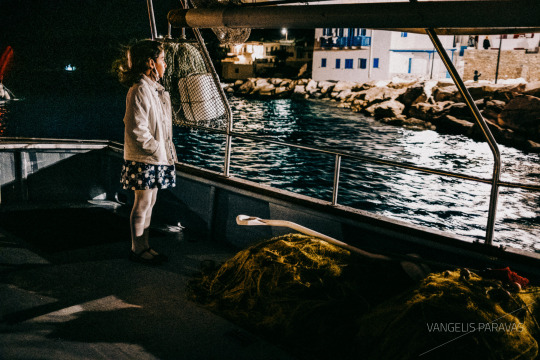
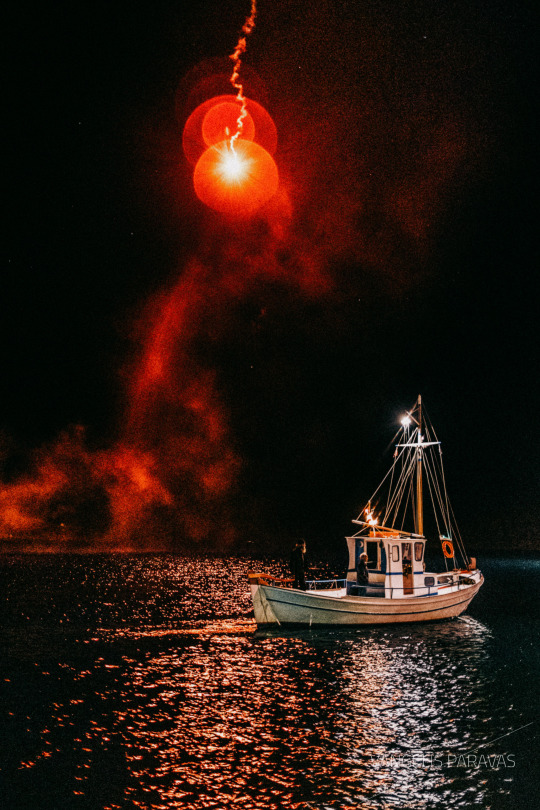
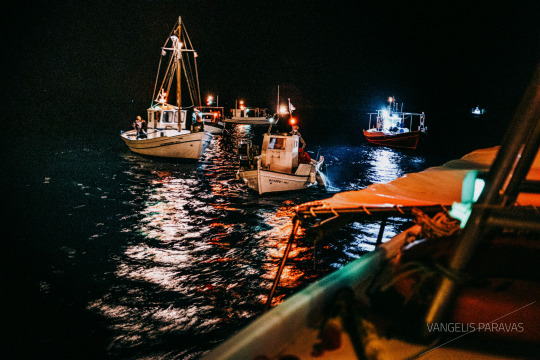
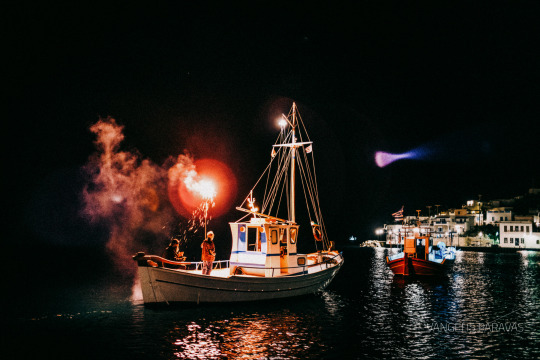
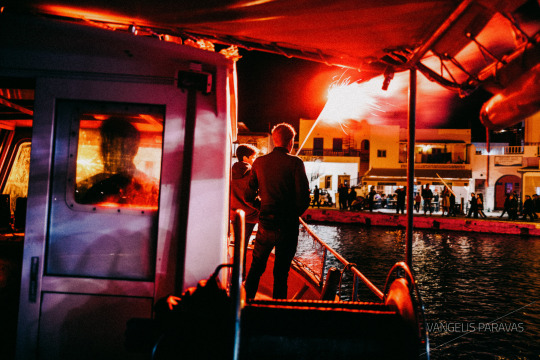
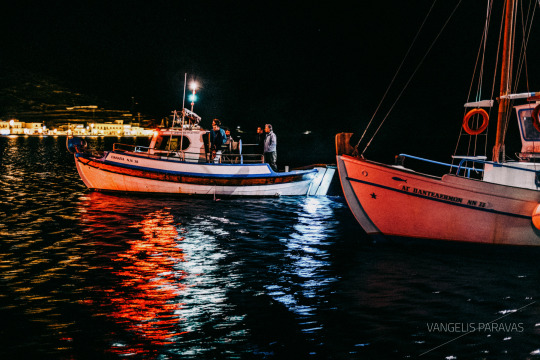
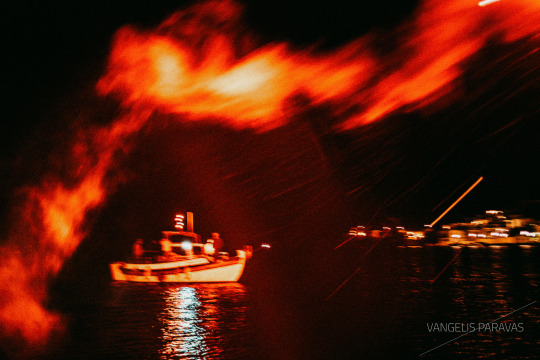
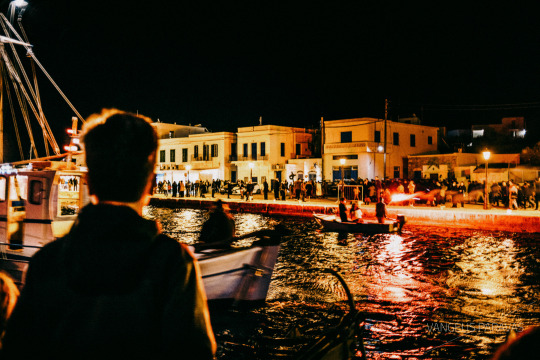
Amorgos [Αμοργός]
This one has been one of the very few islands of the Aegean Archipelago that I had never properly visited and explored, up until the previous April. Amorgos, a long, mountainous, cliffy and rocky piece of land lies on the eastern edges of the Cyclades, facing the islands of Keros, Koufonisia, Schoinousa, Iraklia and Naxos to the northwest, and Astypalaia to the southeast. Quite far from Piraeus (at least 9 hours away by ship), with no airport, Amorgos is regularly connected solely to Naxos and Mikres Kyklades [Μικρές Κυκλάδες], through a daily itinerary carried out by the famous Skopelitis small car ferry.
Remote and isolated from mainland Greece, but also from the majority of the islands of the Aegean Archipelago, Amorgos has built a unique and intriguing character. Not only its landscapes and vistas are spectacular, mountainous, full of cliffs with breathtaking views to the fathomless blue sea, but also its folk is a fusion of locals and foreigners, altogether forming an amalgamation of cultures, visions, origins and ends. As one of the island’s most recent settlers discussed with me during my short stay: ‘Amorgos should not be mistaken, nor confused to be a female, or a consoling woman to travellers, and strangers reaching its shores after a long and tiring journey [*]. On the contrary, Amorgos is a man, the close and solacing friend so much needed in grave and dire times, that will stand by your shoulder and shelter you, being a newcomer and a local alike’. Largely contributing to the reputation of Amorgos has been the Big Blue [Grand Bleu], a motion picture that has established the island as a unique alternative, non touristic destination, still standing, since mass tourism has not yet encroached nor consummated the unique qualities and moments captured by Luc Besson in the late ‘80s.
One of these unique instances has been unwound in front of my own eyes during the night of the Good Friday and the procession of Epitaphios in the village of Katapola, the main port of Amorgos. After Epitaphios has left the Cathedral carried by the mourning worshippers, a ritual takes place choreographed by the small scale fishing community of the island, when fishers man their fishing caiques, stock them with fireworks and flares to be fired, and follow the procession by sea close behind, grieving the Crucifixion of Christ. The feelings and the rewards I received during this peculiar customary tradition were more than moving, filling me with captivating moments and images.
Amorgos is full of surprises, a true gem for travellers striving to avoid the swarms of mass tourism and enjoy the pristine nature, since the island is renowned for its very well preserved long hiking cobblestone paths, crystal clear blue waters, and unspoiled natural habitats. Marine and terrestrial areas of the island have been already designated as parts of the EU Natura 2000 network of Protected areas, both as Special Areas of Conservation for habitats and species of community interest, but also as Specially Protected Areas for wild birds.
*All islands in Greece are of feminine gender, thus we Greeks think of them as females
I would like to sincerely thank the small scale fishers of Amorgos and I should highlight here that over the last years their association, named Hozoviotissa [Χοζοβιώτισσα], after the famous monastery hanging on the southern cliffs of the island, has been a pioneer in an joint effort to establish Marine Protected Areas and No Take Zones surrounding its marine waters, to promote sustainable fisheries, and decrease fishing effort especially through a temporary cessation of all fishing activities during fish spawning periods in April and May each year. At the same time they have been using their fishing fleet to collect and dispose of marine litter from all inaccessible beaches of Amorgos. This important cause has been named Amorgorama [Amorgos’ vision], seeking our support to become a reality soon! The main objective behind this initiative is not only to protect and restore the seriously degraded and overfished marine ecosystems, but also to preserve the traditional and low impact small scale fisheries of the island, the small family-based fishing businesses and the ancient Mediterranean fishing tradition itself, since it constitutes an integral element of Greek insular communities that have been striving to survive and sustain their livelihoods the last decade.
#Cyclades#Easter#fireworks#flares#colour#night#sea#Amorgos#Epitaphios#Good Friday#Hidden Gem#SSF#fishers#tradition#MPAs#Conservation#No Fishing Zones#nature#environment
3 notes
·
View notes